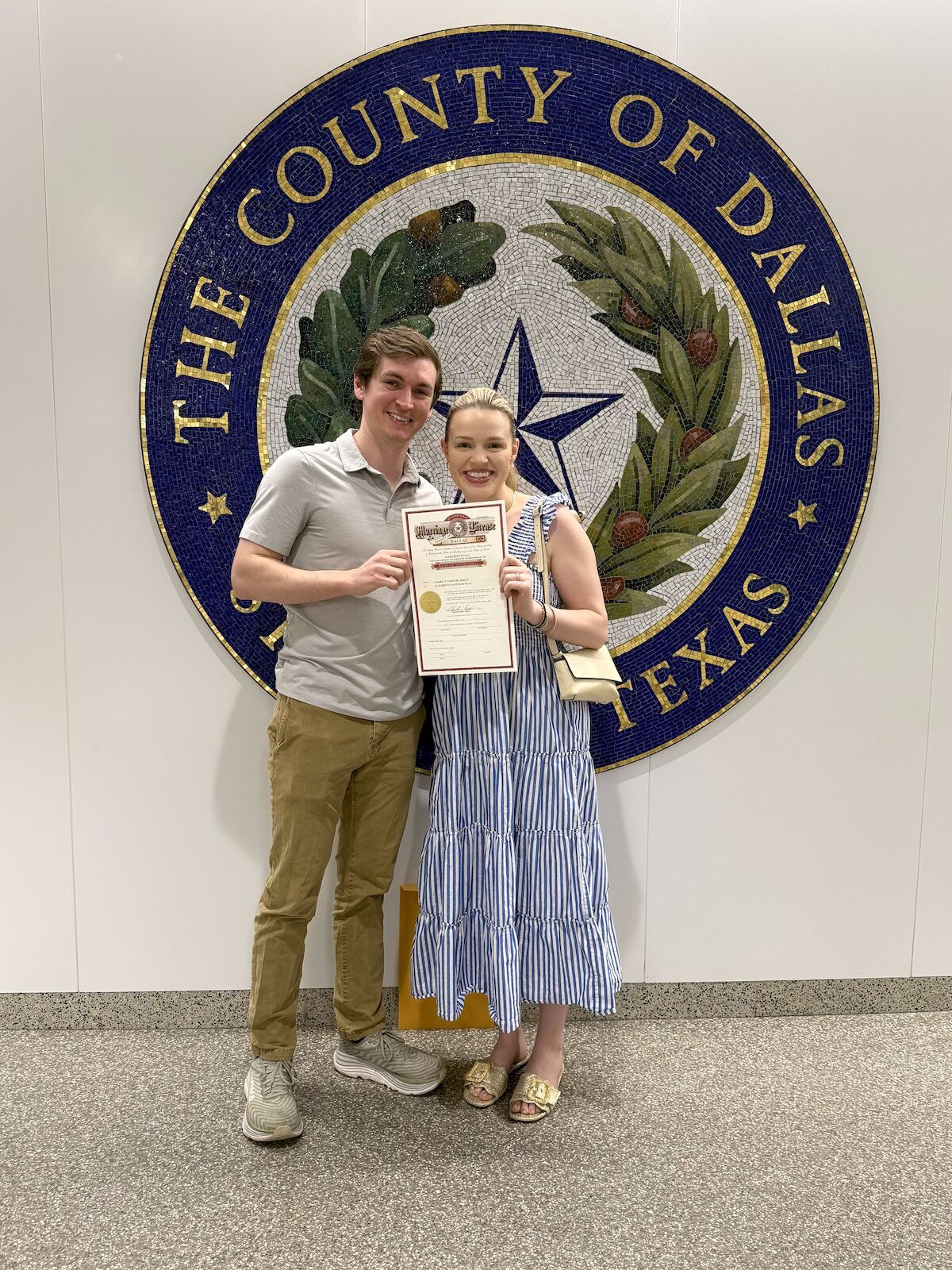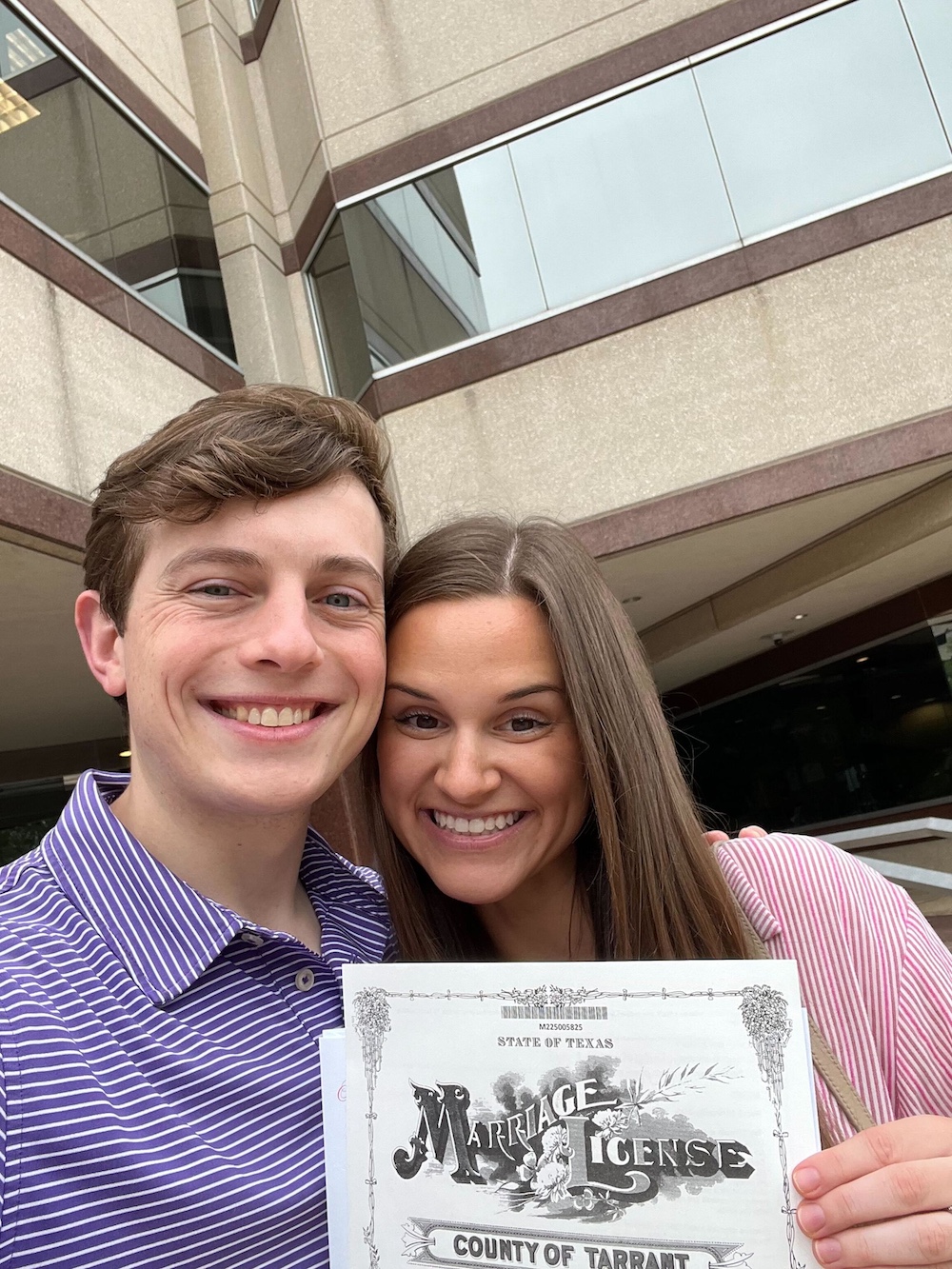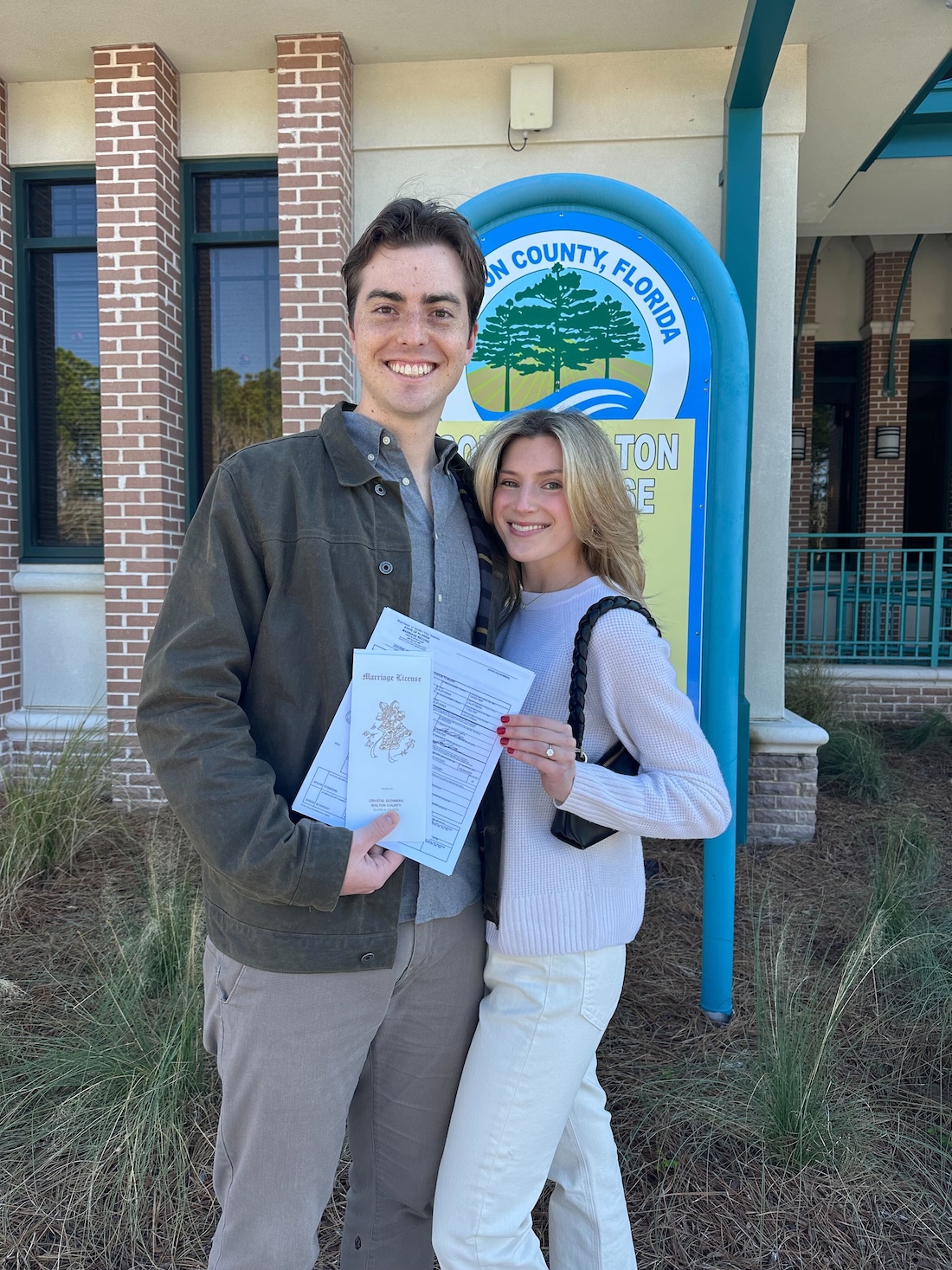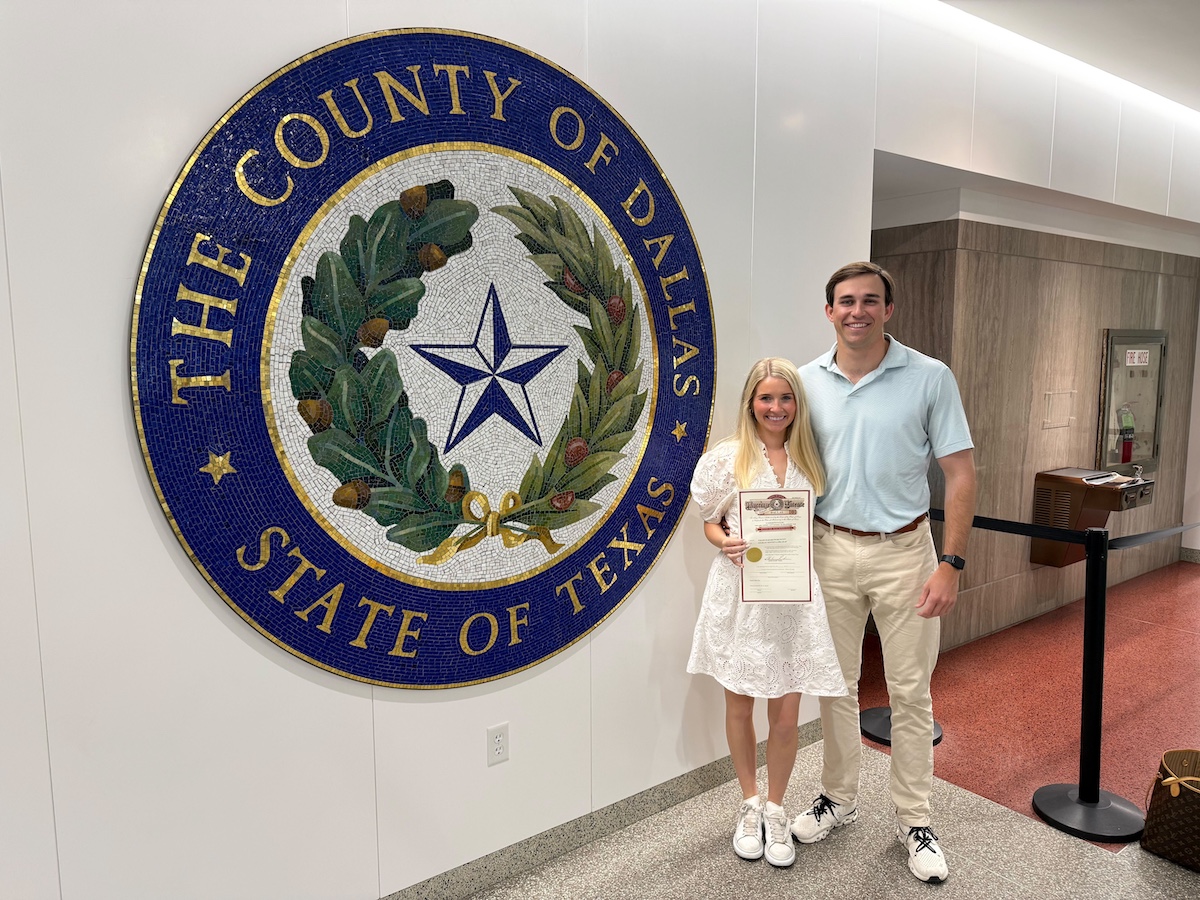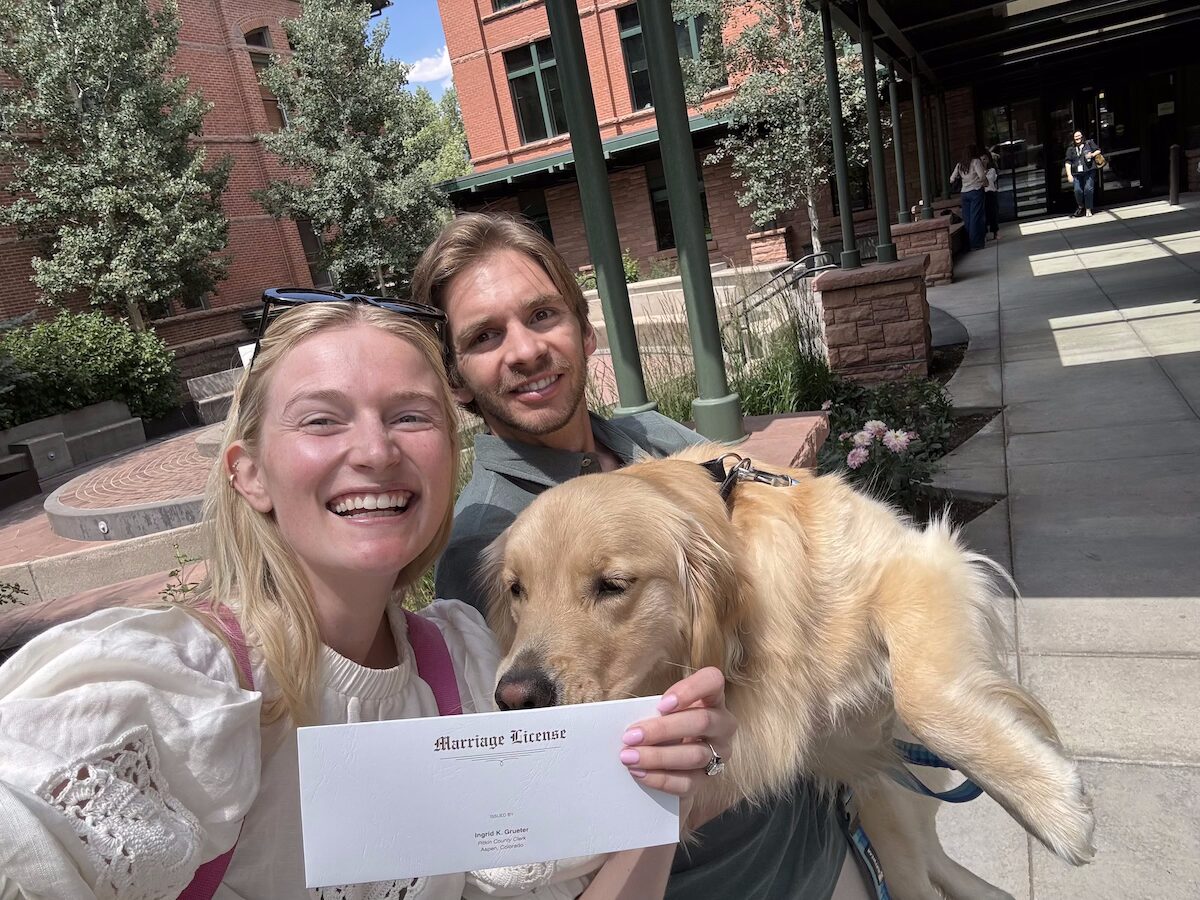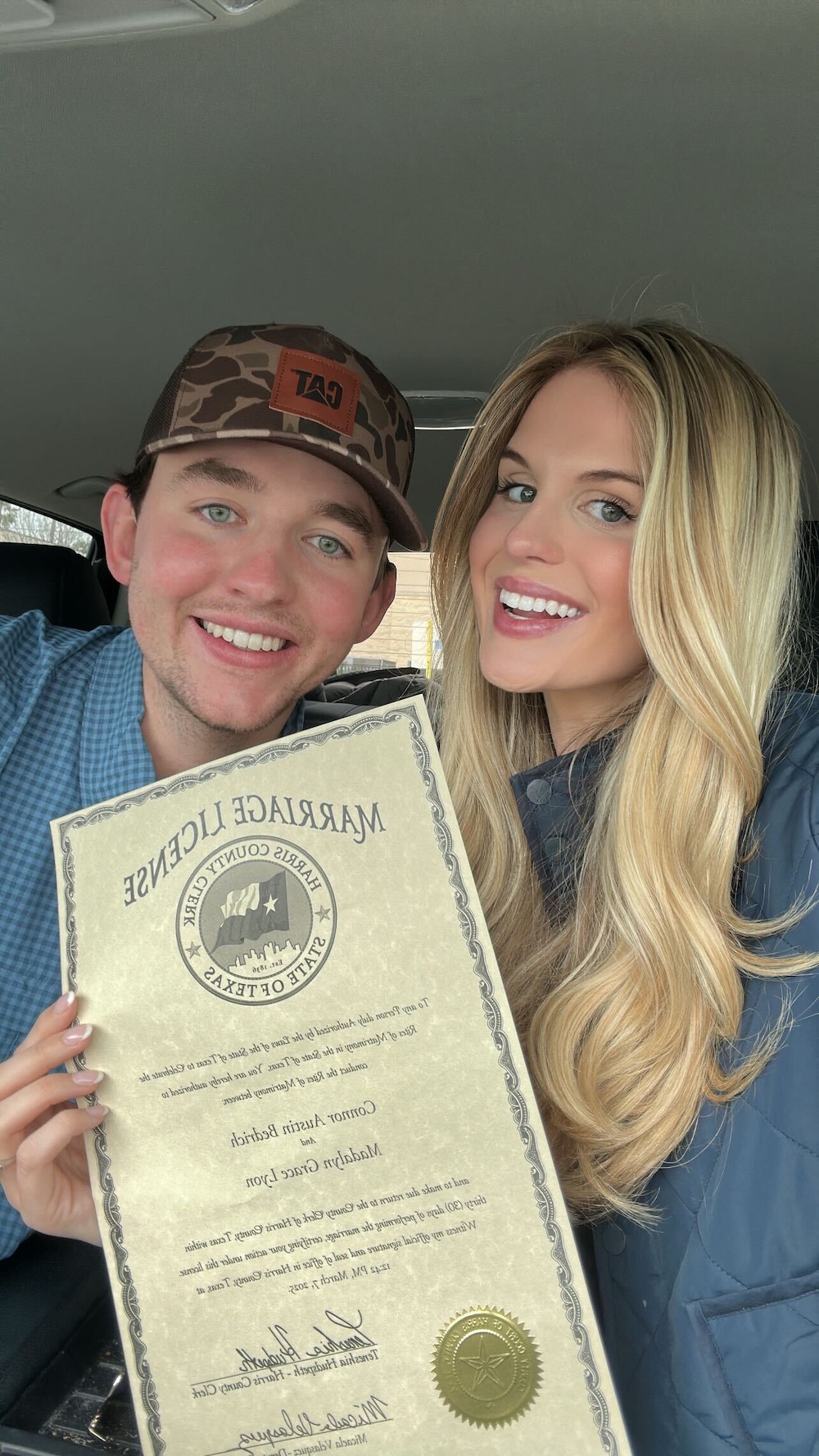
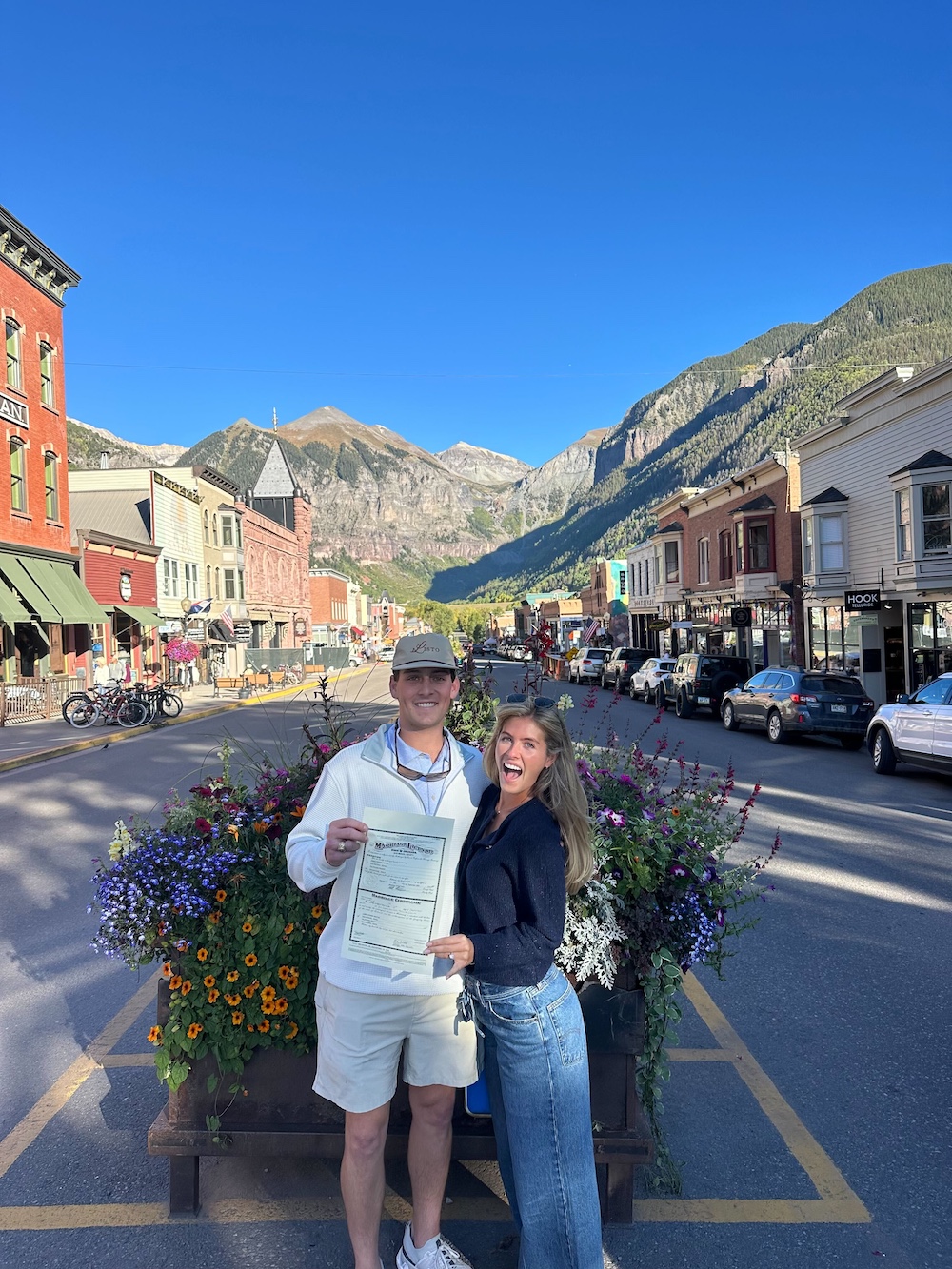

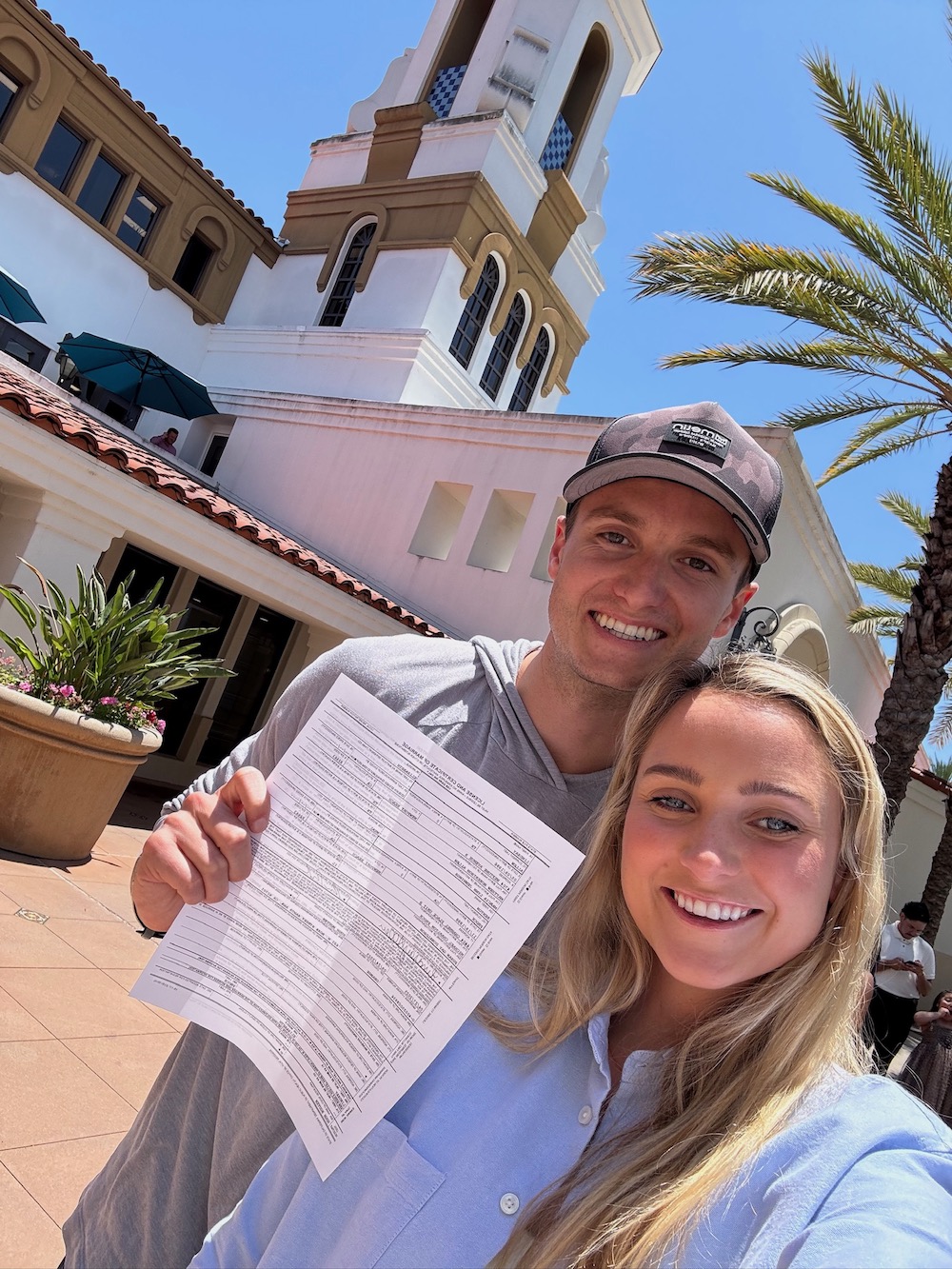
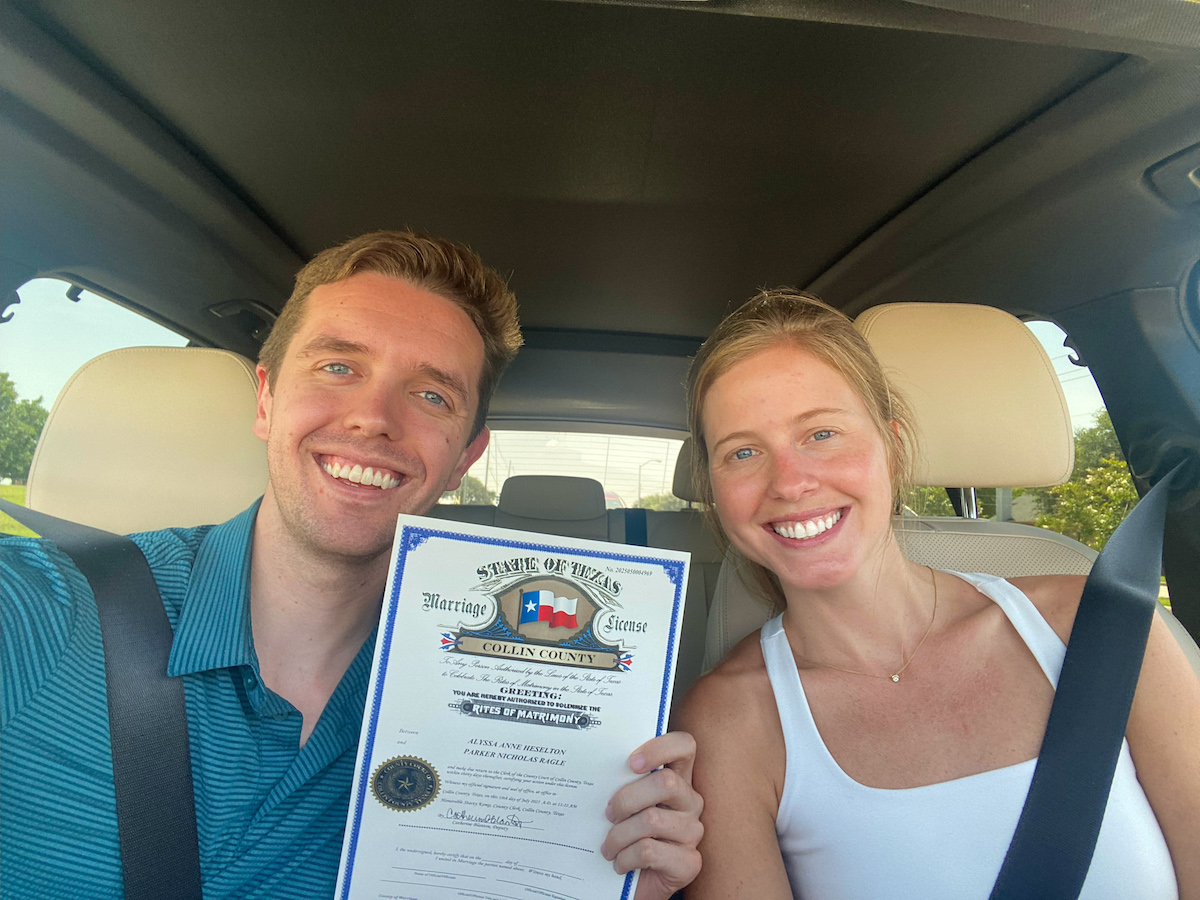

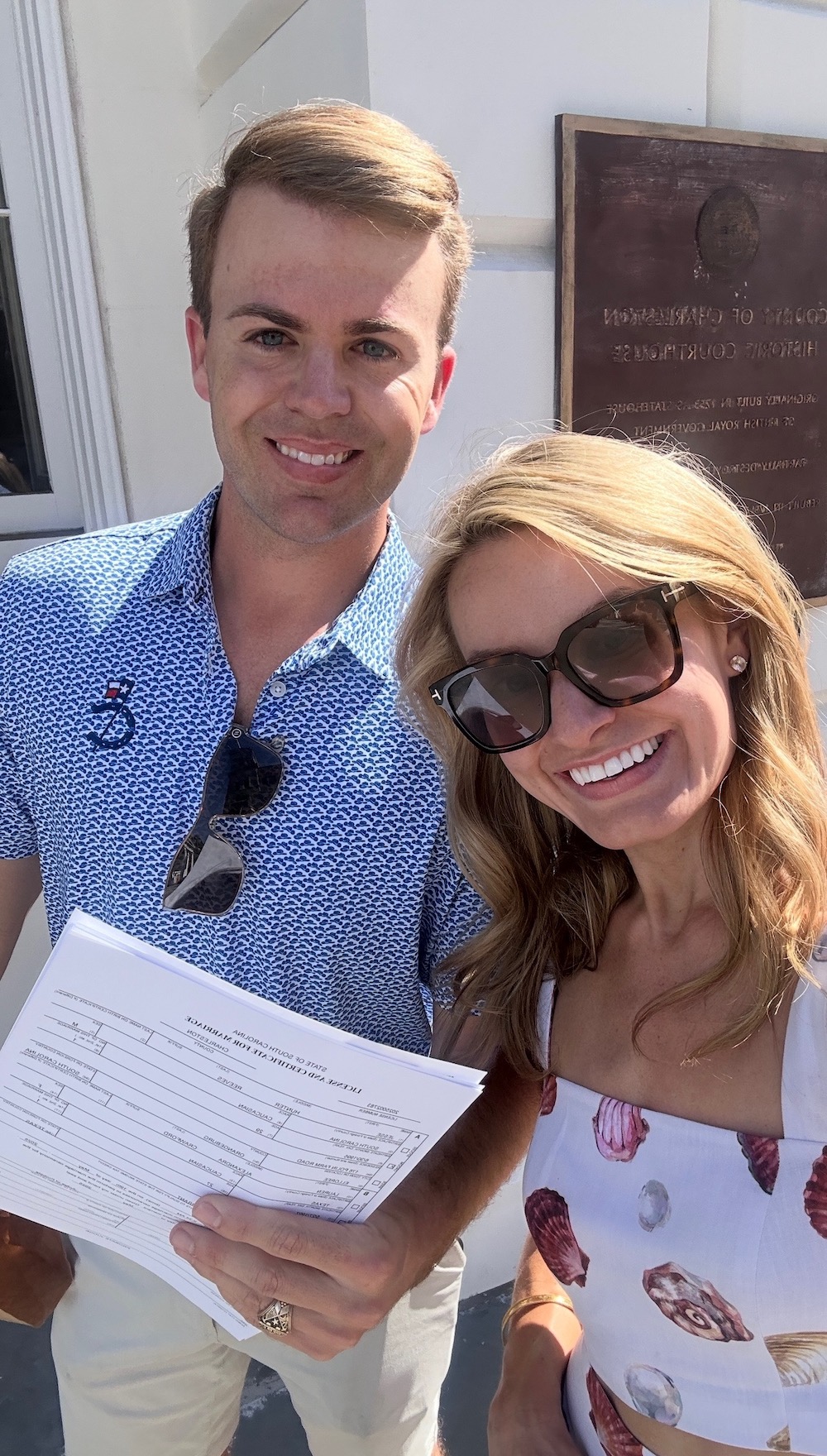
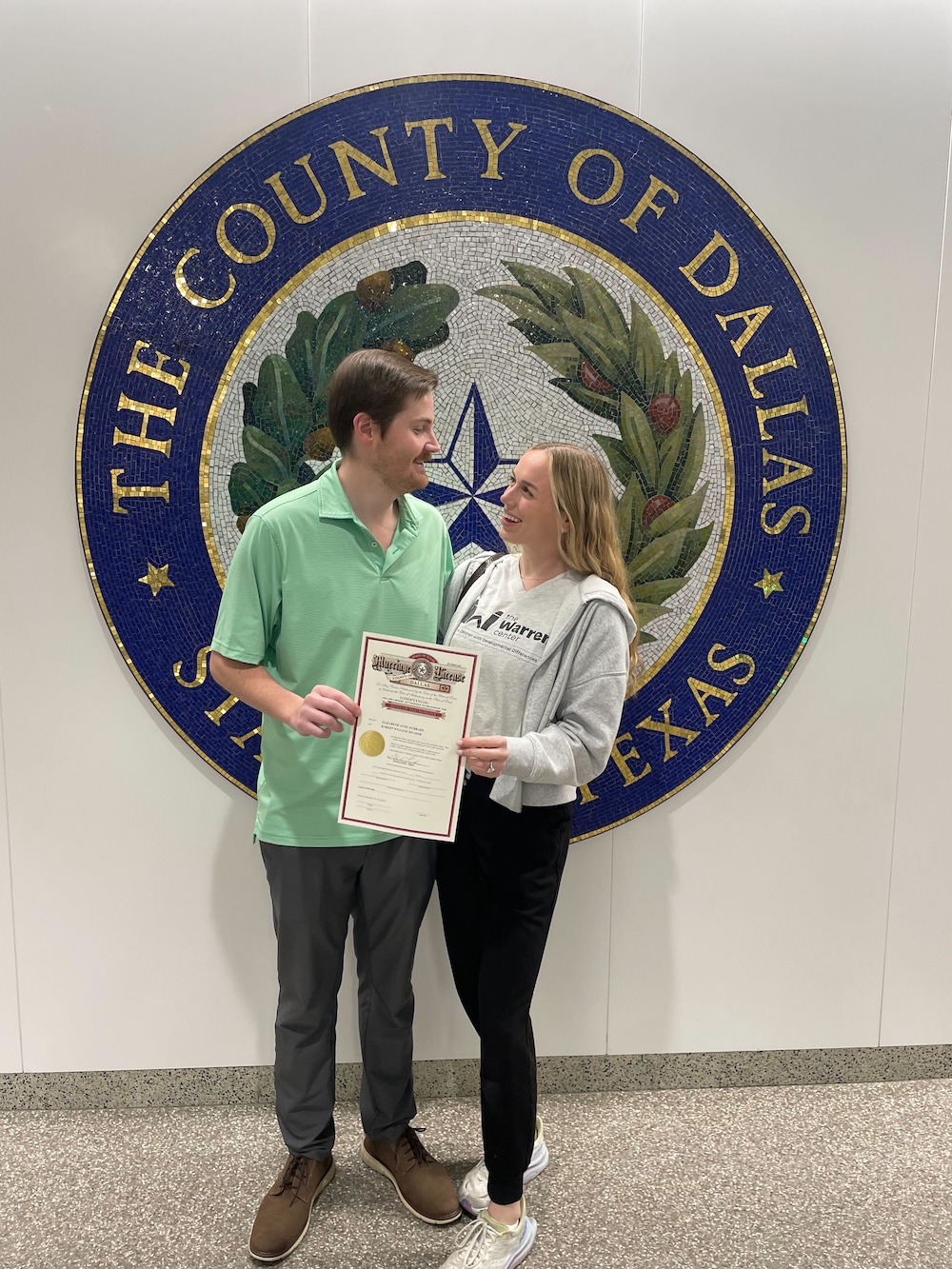
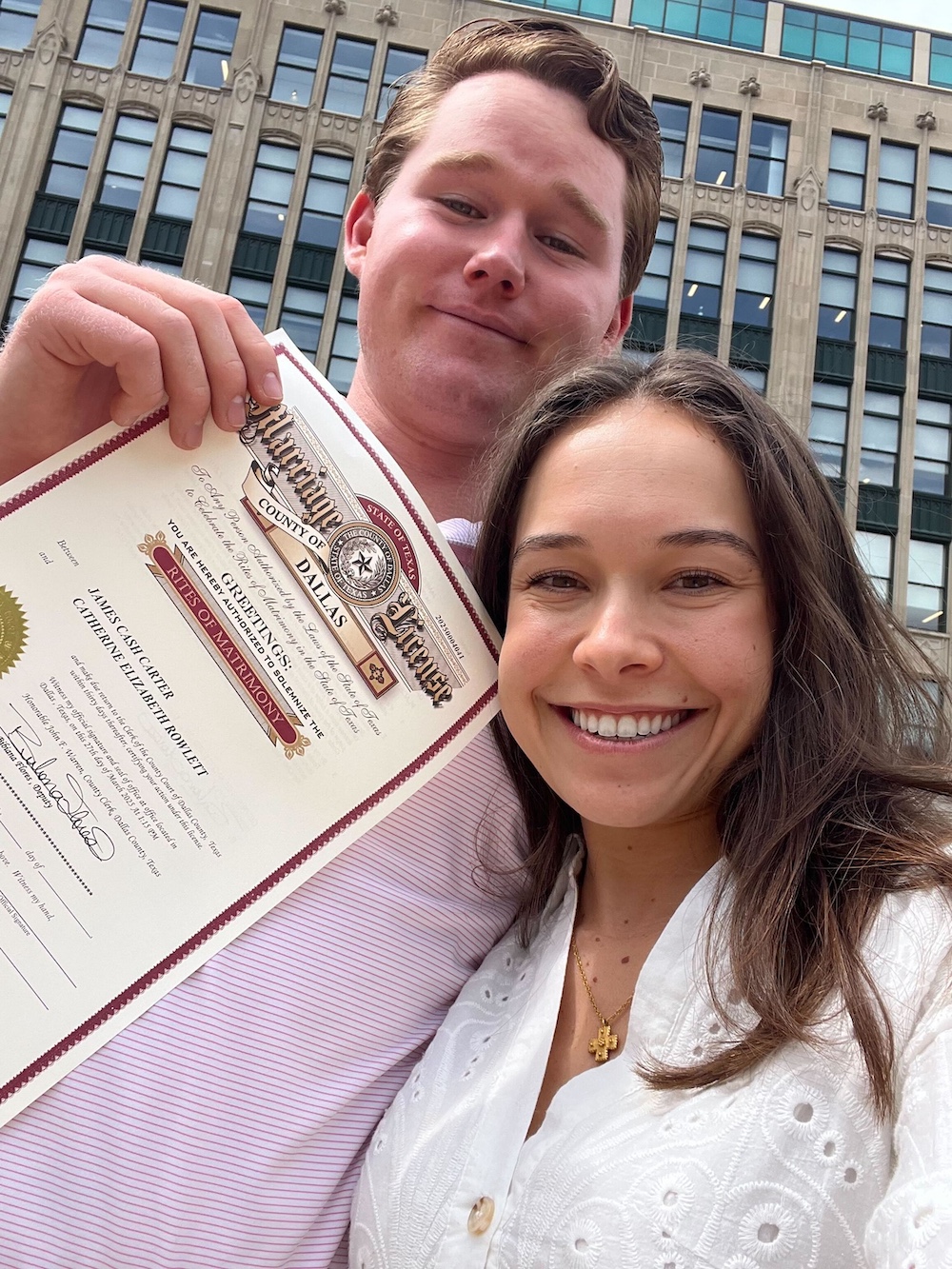

Planning a wedding comes with a long to-do list, but securing your marriage license is one of the most important (and thankfully, most manageable!) steps. If you’re tying the knot in Texas, the process is simpler than you might expect but knowing the key details ahead of time can make all the difference. To ease some of that planning stress, we’ve put together a helpful guide to walk you through everything you need to know about obtaining your marriage license. And because we believe every step of your journey should be celebrated, we’re sharing a few joyful snapshots of our couples picking up theirs. Soon, that’ll be you!
Where to Apply
In Texas, marriage licenses are issued at the county level. You can apply at any county clerk’s office within the state, regardless of where you plan to wed. However, it’s advisable to choose a location that’s convenient for you. Many counties now offer online application processes, allowing you to complete the initial steps before visiting in person.
What You’ll Need
When applying for your marriage license, both parties must appear in person and provide:
- Valid Identification: Acceptable forms include a driver’s license, passport, and/or birth certificate.
- Personal Information: Full names, addresses, birthdates, social security numbers, and parents’ full names.
- Payment: Fees typically range from $60 to $80, depending on the county. Some counties may accept only cash, while others accept credit cards. It’s advisable to check with your local county clerk’s office for their accepted payment methods.
Waiting Period & Waivers
In Texas, there is a mandatory 72-hour waiting period after obtaining your marriage license before you can actually get married. However, the waiting period can be waived in certain cases, contact your county clerk’s office for specific details and eligibility. The marriage license remains valid for 90 days after issuance, so you have flexibility in scheduling your ceremony.
Tips for a Smooth Process
- Apply Early: While the process is straightforward, it’s best to apply for your marriage license well in advance of your wedding day to avoid any last-minute issues.
- Check County Requirements: Requirements and fees can vary by county. Always check with your local county clerk’s office for specific details.
- Bring Necessary Documents: Ensure you have all required documents and payment methods to prevent delays.
Securing your marriage license is a key milestone in the planning process, and with a little preparation, it can be one of the easiest to check off your list. Be sure to review your county’s specific requirements or visit their website if you need additional details.
This is just one meaningful step in the exciting season ahead. Wishing you joy, ease, and plenty of moments to soak it all in as you get ready to say “I do.”








































